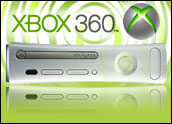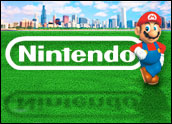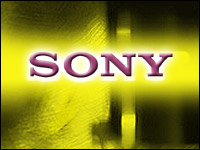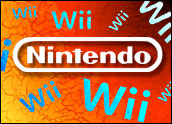
The gains that have made 2008 a blockbuster year for the video game market continued in August; however, the rate of sales showed signs of slowing down for the month. Overall sales growth was held to single digits for the first time since 2006, according to numbers released Friday from market research firm NPD.
August industry sales remained strong and saw a 9 percent gain over last August, though the month posted the first single-digit percentage growth in 27 months, said Anita Frazier, an analyst at NPD.
The industry brought in a total of US$1.08 billion in August, some $85 million more than in August 2007. Video game hardware numbers increased to $394.53 million, a 3 percent jump. Software sales growth dipped slightly as well in August, increasing just 13 percent to $550.67 million.
Despite the smaller gains, industry sales are up 32 percent year-to-date and are on target to reach a year-end mark of between $22 billion and $24 billion.
The problem for the industry in August was that there “really [was] nothing that interesting moving sales,” said Rob Enderle, principal analyst at Enderle Group.
“The platforms are all aging, and the one exciting one, the Wii, is both constrained and doesn’t really have that many games other than the ones it ships with that people seem to want to buy,” he told the E-Commerce Times.
A Holiday Slowdown?
The dip in sales growth for the video game industry is largely due to “seasonality in the gaming industry,” said Stephanie Ethier, an analyst at In-Stat.
“What we’ve been seeing in August is the back-to-school season for the younger gamers, and the post-vacation, back-to-work time period for the older gamers,” she told the E-Commerce Times.
Although Ethier said she doesn’t think manufacturers should abandon hope for the holiday season based on these numbers, Enderle has a more bearish outlook, as he sees no big-name gaming titles set for release this fall.
“It is a fourth-quarter business, but with aging platforms, sales will be well off prior years. Titles drive sales, and without hot titles, folks don’t buy,” he said.
August sales may show that the overall economic woes in the U.S. may finally be seeping into the video game market, said Ted Pollak, president of EE Fund Management.
“We’re in a mini-recession, and everything gets affected by that. It is possible that the bad [economic] environment could be affecting sales,” he told the E-Commerce Times.
In terms of the holiday season — traditionally when game manufacturers experience the strongest sales — the Wii has nothing to worry about, Pollak said. However, the PlayStation 3 and Xbox 360 may benefit more from the digital TV transition set for February 2009. Though the most consumers will need to spend in order to adjust to the changeover will be a few dollars for a converter box, retailers will likely use the event as opportunity to push high-definition (HD) TVs at marked-down prices.
“It’s possible that what will hold back sales of the Xbox 360 and the PS3 are running into HD television conversion factors. The mandatory switchover will stimulate quite a bit of third-generation console sales. A lot of people won’t buy either console unless they have a [high-definition] TV. The prices on HD TVs are coming down, and there should be some sales before the transition during the holiday season,” he continued.
Wii Keeps Selling
For August, Nintendo’s Wii console continued its reign at the top of the console charts despite a slowdown in sales from 555,000 in July to 453,000. That brings the number of Wiis sold in the U.S. by the end of August to more than 13.9 million, according to VG Chartz.
Consumers picked up some 518,000 units of the portable Nintendo DS system, along with more than 1 million units of “Wii Fit,” “Mario Kart,” “Wii Play,” and “Madden NFL 09” combined. The games took the fourth, fifth, sixth and ninth slots among the Top Ten gaming titles sold in August. Include accessories in the mix, and the Wii was responsible for 28 percent of total industry dollar sales in August, according to Frazier, despite the console’s status as one of the least costly systems.
Both Enderle and Pollak expect the Wii to continue to outsell the Microsoft Xbox 360 and Sony’s Playstation 3.
“Nintendo really could hit upwards of 50 million to 100 million units over the lifetime of the Wii,” Pollak predicted.
“I think it likely it will. Nintendo is showcasing what has worked in other segments: Focus on a pure offering and provide it at an aggressive price. The other two are both complex and expensive, and that isn’t a great combination,” said Enderle.
The Console War Still for Second Place?
Still looking year-to-year, Sony’s PlayStation Portable and PlayStation 3 consoles achieved the largest percentage gain, selling 253,000 units and 185,400 units, respectively. However, sales for the PS3 dropped off slightly from July 2008, when U.S. retailers moved 224,900 platforms.
Sales for the Xbox 360 dipped a little as well, dropping from just over 204,000 to 195,200 units in August. That number could increase dramatically in September, however, following Microsoft’s decision to cut prices on its three Xbox 360 models — the Arcade, Pro and Elite — by $50 at the start of September.
“Possibly, price does move product. But I’m not sure it is enough this time, primarily because the Arcade version at the key price point may be seen as crippled by the market,” said Enderle.
The ’09 edition of “Madden NFL” a perennial chart-topping franchise, took the Nos. 1, 2 and 3 spots for the Xbox 360, PS3 and PlayStation 2. Following its Aug. 8 release, gamers purchased more than 2 million copies of the game. Also ranking in the top 10 were “Soul Calibur IV” and “Too Human” on the Xbox 360 in the seventh and eighth spots, and “Guitar Hero on Tour” for the DS, which took the 10th slot.






















































Social Media
See all Social Media